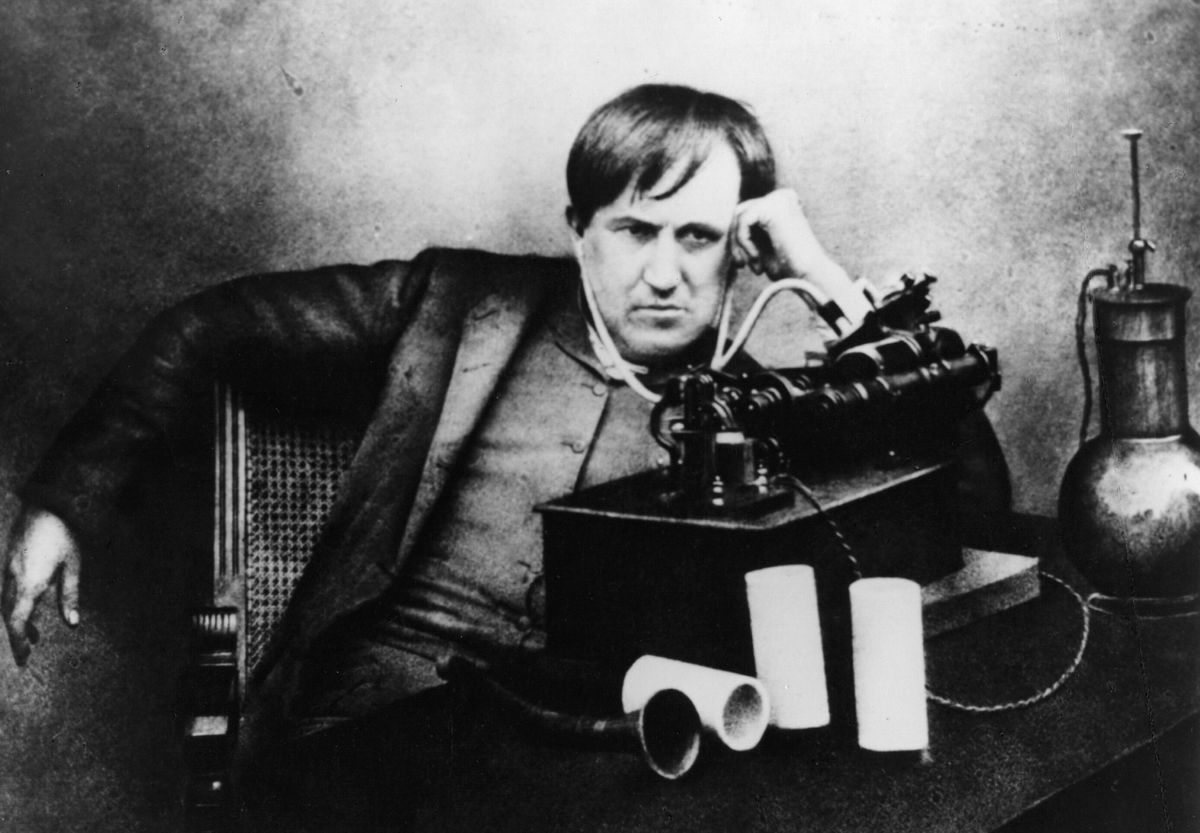Curious Edison Phonograph Archives Of West Orange

Have you ever wondered about the Edison Phonograph Archives in West Orange? This hidden gem offers a glimpse into the past, showcasing the incredible inventions of Thomas Edison. Located in New Jersey, the archives house a treasure trove of historical artifacts, including early phonographs, recordings, and documents. Visitors can explore the evolution of sound recording technology and learn about Edison's impact on the industry. Whether you're a history buff or just curious about old gadgets, the Edison Phonograph Archives provide a fascinating look at the innovations that shaped modern audio. Ready to step back in time and see where it all began?
Curious Edison Phonograph Archives of West Orange
The Edison Phonograph Archives in West Orange, New Jersey, offer a fascinating glimpse into the history of sound recording. This unique collection showcases the ingenuity and creativity of Thomas Edison, one of America's greatest inventors. Let's explore some of the most intriguing aspects of these archives.
Early Phonograph Models
The archives house an impressive array of early phonograph models. These devices represent the evolution of sound recording technology from its inception.
Tin Foil Phonograph: The first phonograph, invented in 1877, used tin foil wrapped around a cylinder to record sound. This groundbreaking invention marked the beginning of recorded audio.
Wax Cylinder Phonograph: By the 1880s, Edison had improved his design, using wax cylinders instead of tin foil. These cylinders provided better sound quality and durability.
Amberol Records: Introduced in 1908, these records were made from a more durable material, allowing for longer recordings and improved sound quality.
Rare Recordings
The archives also contain a treasure trove of rare recordings, offering a unique glimpse into the past.
Edison's Voice: One of the most notable recordings is Edison's own voice, captured in the late 19th century. Hearing the inventor speak adds a personal touch to the history of the phonograph.
Early Music Recordings: The collection includes some of the earliest music recordings, featuring popular songs and classical pieces from the late 1800s and early 1900s.
Historical Speeches: The archives preserve recordings of important speeches, providing a valuable resource for historians and researchers.
Edison’s Laboratory
A visit to the archives wouldn't be complete without exploring Edison's laboratory. This space offers insight into the inventor's creative process and work environment.
Original Workbench: Edison's workbench, complete with tools and materials, remains preserved as it was during his lifetime. This glimpse into his workspace helps visitors understand his hands-on approach to invention.
Laboratory Equipment: The lab contains various pieces of equipment used by Edison and his team, including early recording devices and experimental apparatus.
Blueprints and Notes: Edison's detailed blueprints and handwritten notes provide a window into his inventive mind, showcasing the meticulous planning behind his creations.
Interactive Exhibits
The archives feature several interactive exhibits, allowing visitors to engage with the history of sound recording in a hands-on way.
Phonograph Demonstrations: Live demonstrations of early phonographs let visitors experience the magic of these devices firsthand, hearing the crackle and pop of vintage recordings.
Sound Recording Workshops: Workshops offer a chance to learn about the principles of sound recording and even create your own recordings using vintage equipment.
Virtual Reality Experiences: Cutting-edge VR experiences transport visitors back in time, providing an immersive look at Edison's world and the development of the phonograph.
Educational Programs
The archives offer a variety of educational programs designed to inspire and inform visitors of all ages.
School Tours: Guided tours for school groups provide an engaging introduction to the history of sound recording and Edison's contributions to technology.
Lectures and Seminars: Experts in the field of sound recording and history give lectures and seminars, offering deeper insights into the significance of the phonograph and Edison's work.
Hands-On Activities: Interactive activities for children and adults alike make learning about the phonograph fun and accessible, encouraging a deeper appreciation for this groundbreaking invention.
Why You Should Visit the Edison Phonograph Archives
The Edison Phonograph Archives in West Orange offer a unique glimpse into the past. You can see Thomas Edison's inventions up close and learn about the history of sound recording. The archives house original phonographs, early recordings, and personal items from Edison’s life. This place isn't just for history buffs; it's for anyone curious about how modern technology began.
Visiting the archives provides a hands-on experience with interactive exhibits and knowledgeable guides. You’ll leave with a deeper appreciation for Edison's contributions to technology. Plus, the surrounding area of West Orange has other attractions, making it a great day trip.
Plan your visit to the Edison Phonograph Archives soon. It’s a chance to step back in time and see the roots of today’s audio technology. Don’t miss out on this fascinating piece of history.

